- Home
- Jack Higgins
The Midnight Bell Page 10
The Midnight Bell Read online
Page 10
“So kind of you to ask; I’ll be delighted to accept.” Hunter switched off, turning to Dolan. “So that’s taken care of.” The cab was just pulling into the Hilton. “So now we book in, unpack, have something to eat, then get down to Charnley and sort Weber out.”
—
MEANWHILE, WEBER WAS CHECKING his left wrist and calling the Master.
The call was answered on the instant. “So soon, my friend?”
“Yes, he just called. I told him I was in London on business, and he told me to get back to Charnley so we can talk. What do I do?”
“As he says. Return to Charnley, listen to his demands, then point out again that bargaining with corrupt officials in Mali takes time and that it’s impossible to land there without such documentation. Having discovered the value of what’s going on, the officials involved are demanding a fortune. I’ll be interested to know what his reply will be.”
“I’ll see what he says, but he’s a hard bastard at the best of times. A thoroughly self-serving individual, and the Dolan man is an animal.”
“That is not the strength but the weakness of people like that,” the Master told him. “We’ll speak later when you know where you are. Stop worrying, my friend, you’ve got me to do that.”
Weber, feeling suddenly empowered, did just that. Pulling on an anorak in case of rain, he hurried downstairs to his car and set off for Charnley.
—
HANNAH WAS STILL with Roper and Dillon in the computer room when Sara and Holley returned, fresh faced.
“I trust you enjoyed your ablutions,” Roper said. “But things have been moving along. The dubious Colonel Hunter and his bagman sergeant have been logged through Heathrow and booked into the Park Lane Hilton.”
“So convenient when he wants to be able to keep an eye on Cazalet at the Dorchester,” Sara said.
“He’s not a nice man.” Roper nodded. “A proper bastard in every way, which MI5 confirmed big-time. You’ll be meeting him tonight, he’s been invited to the reception, but then he would be. It’s protocol, but there’s nothing to do about that.”
“Well, I for one would like to know what makes him tick,” Holley said. “Which at the moment, appears to be Charnley airfield and the ghostly Dakotas, so I have a suggestion. At Farley Field, only twenty minutes away by car, I have one of my most prized possessions, my Falcon jet. I could fly a plane like that to this Charnley place in fifteen minutes or so and find out what goes on there. I’d only be following the Algerian foreign minister’s orders. I can take passengers if anyone fancies the flight.”
“You can rule me out, too complicated,” Roper said. “But the rest of you might find it fun. Pretend you’re an enthusiast, Sean, who’s got a thing about old Dakotas. You’re just friends having an afternoon out.”
“Sounds good to me,” Sara said. “I’m up for it if you are, Hannah?”
“Of course she is, so let’s get moving,” Holley put in. “We’ll see you later, Giles.”
They left on the run, there was laughter outside for a while, doors banged closed in the Land Rover, and away they went, leaving Giles Roper alone in his eternal wheelchair.
—
HANS WEBER HAD a good run to Charnley in his old Volkswagen before getting out to open the main gate, for he’d closed the place for a week until he could work out for certain what was going to happen. He walked back to the VW to slide behind the wheel when, with a sudden roar, a Falcon swooped overhead, circled the airfield, and dropped in with great skill to one side of the two Dakotas parked beside a handful of small planes.
As Weber got behind the wheel of the VW and drove to investigate, the Falcon’s airstair door opened and Holley and his passengers got out. Weber parked the VW and went to meet them.
“Good afternoon, I’m Hans Weber and I own this place. I’m afraid we’re not open, but if I can help in any way.” He turned to the Falcon. “A superb aircraft.”
“True,” Holley said. “But the two Dakotas there. What truly remarkable airplanes. The workhorse of the Allied armies during the Second World War and after. From flying over the Himalayas carrying essential supplies from India to China, to flying everything from coal to foodstuffs to keep people fed during the Berlin Blockade in nineteen forty-eight. I hear you run a freight company carrying cargo to Nigeria and Mali.”
Weber immediately looked wary. “The odd flight, but there isn’t really much call.”
“I suppose not,” Holley said. “But we’d love to have a look in one of the Dakotas.” Before Weber could reply, a Mercedes swept in through the open gates and came toward them, top down, Dolan at the wheel and Hunter beside him.
They both got out, and Hunter said, “What in the hell’s going on here? We’re not open for business.”
Dillon, a brilliant actor since his youth, had no difficulty in assuming an English accent that was upper class to perfection.
“No need to adopt that kind of tone. It offends the ladies, and we can’t have that, can we?”
Dolan advanced on him. “Then you know what to do, you little ponce. Just get back in your fancy plane and clear off before I flatten you.”
Dillon turned to Weber. “Your partners?”
“In a way,” Weber said. “One of the biggest mistakes of my life.”
“Then all I can say is I’m sorry for you. Such a pity. One of those Dakotas would have complemented the Spitfire in my collection. Carruthers, you may fly us out of this shocking place as soon as may be.”
Sara and Hannah played their parts beautifully, haughty and disdainful as they followed Holley up the steps into the Falcon, Dillon bringing up the rear. Only after the door closed did the two women collapse with laughter, hugging each other, before dropping into their seats.
“Carruthers,” Holley called, as he sat down at the controls. “Where in the hell did you get that from?”
“Oscar Wilde or it might have been Noël Coward,” Dillon said.
“A powerful performance,” Holley told him. “You did well to keep your hands off him.”
“I wasn’t going to do that. It would prevent me from experiencing the look on Hunter’s face when he meets us at the reception.”
“Oh, we’re all looking forward to that,” Hannah called, and then the Falcon roared along the runway, lifted up over the gate, and started to climb.
—
“WHO WAS THAT?” Hunter demanded.
Thanks to the Master, Weber felt a new confidence. “Oh, just some bloke. He said he collects old planes and would like to get his hands on a Dakota.”
“Just a big kid playing with toys.” Dolan sneered. “I’d like to kick him right up his backside, and those two posh birds need a real man to take them in hand.”
“Which I presume would be you?” Weber said.
“You bet your life it would be.” Dolan’s eyes gleamed. “I’d show them who was boss.”
“Spare us the details,” Weber said, and turned to Hunter. “You want a go and I just don’t have one moment right now. You can come into the office and examine the documentation. I’m trying every way to get a deal with those crooks in the airport at Mali.”
“Then up the price, offer them more,” Hunter said. “We can afford it. We’ll make a fortune if we can get the right kind of stuff out there into the world market. Everybody’s got a price. Find out what theirs is.”
“That won’t help in this case. Even the villains are Muslims, and as the facts become clear to the general population that the books, the documents, the art, everything looted in Timbuktu, have enormous religious significance, even the bad guys will take it seriously.”
“All the more important that you get this done right now, Weber. Don’t fail me, or you’ll regret it. We’re staying at the Hilton. I expect to hear from you soon.”
They drove away, and Weber called the Master and told him what had
happened.
“This Hunter is a bad man with no honor in him at all, and his sergeant has the manners of a street thug,” he complained.
“I couldn’t have put it better myself, Mr. Weber. But don’t worry, he’ll be out of your hair very soon. Men with no honor die with no honor.”
7
THE AMERICAN EMBASSY in Grosvenor Square was no more than a hundred yards from Highfield Court, which is why Charles Ferguson’s people gathered there before going to the reception.
Sara and Hannah arrived a couple of hours early to give whatever help was necessary but discovered that they were not really needed.
“I can’t compete with the American Embassy for food, and it would be madness for anyone bothered about their career to turn up drunk.” Sadie shook her head. “So coffee and soft drinks, I think.”
“Totally boring, but sensible, I suppose,” Sara told her. “I think I’ll go have a shower and change.”
“I’ll do the same,” Hannah said. “We’ll see you in a bit, Sadie.”
—
HANNAH WAS BACK some forty minutes later wearing a deceptively simple evening suit of black silk by Givenchy that Sara had insisted on buying for her the moment they set eyes on it in Harrods. Complemented by a white linen blouse and her fashionably short hair, Hannah looked sensational when she went downstairs and found Roper in his wheelchair in the rabbi’s study, where a log fire burned brightly.
“My goodness,” he said. “You look wonderful.”
“Even with this?” She raised the walking stick in her left hand.
“You should try a wheelchair, but I love you enough to say stop feeling sorry for yourself. You, Sara, and I, we share the same problem, and it’s a bastard, but you have to make the best of it. So give me a kiss on the cheek, then slide back the partition to the piano room and play something.”
So she did, revealing the Schiedmayer concert grand, the conservatory crammed with flowers and plants. To one side was a stand with candles and matches to light them, which she did, aware of cars arriving outside.
There was a step behind her, and she turned and found Sara in the full dress uniform of a captain in the Intelligence Corps, an array of medals on her tunic.
Hannah said, “I’ve never seen you like that. You look great.”
“So do you. We’re going to have a special evening, so what do you think of giving it a special start with some vintage Cole Porter?”
As Ferguson entered, leading Cazalet, Blake Johnson, and Henry Frankel, Hannah sat down, but instead of playing Porter, she plunged into one of her favorites, the magnificent and shattering opening of Rachmaninoff’s Fourth Piano Concerto. She took it up in a crescendo, cut it off suddenly, then turned on the stool to find them staring in awe.
She felt like a fool for showing off and tried to brave it out. “Of course, when it comes down to it, what Rachmaninoff really needs is a fine orchestra and a world-class pianist.”
Ferguson led the enthusiastic clapping, and called, “Make it Hannah Flynn with the London Symphony Orchestra at the Albert Hall, I’ll be the first to buy a ticket. Where on earth have you been keeping such a talent?”
“Oh, I have a marvelous teacher, it’s all his doing,” she said, as others crowded around to congratulate her.
Henry Frankel kissed her cheek. “I wish I were your agent, love, I really do. I’d make a fortune.” Then he clapped his hands. “I think it’s time we started over to the embassy, everyone.”
Tony Doyle stepped behind Roper’s wheelchair and led the way out. Sara moved to Hannah’s side and hugged her as they went forward. “It was so wonderful, and Sadie cried her eyes out. She loves you like a daughter, you know. But where did all that come from?”
“Henry Frankel asked me that, too, and I said I had a great teacher at college, and that’s true, but—I don’t know, something’s happened inside me. It’s like I’m discovering myself.”
—
GROSVENOR SQUARE WAS as busy as it always was when there was a reception at the embassy, with a sizeable police presence and only a few cars allowed to park after being carefully checked. The Mercedes had been one of them when it had arrived earlier and Hunter, resplendent in dress uniform, had gone into the embassy, leaving Dolan to fill his time the best he could.
He was standing on the pavement, leaning on the Mercedes and smoking a cigarette, when he had a shock. Sara, in uniform with all the medals, caught his eye, and then he realized where he’d seen her and the girl walking with her before.
A couple of policemen stepped into the road to hold up traffic for Roper in his wheelchair, the others following him, Dillon and Holley walking together. As they crossed the road, Dillon recognized Dolan and waved.
“Won’t they let you in, old boy? What a shame.”
He and Holley laughed as they were passed through the security gates to be greeted by American marines.
Hunter’s mobile trembled in his pocket with a text that said: Call me. He retired to the privacy of the men’s room and called Dolan.
“What the hell is so important?” he demanded in a low voice.
“I was watching people going in, and those crazy Falcon people from Charnley were there.”
“You must be mistaken.”
“No, I’m not. The two women were with the group, one in army uniform. She had medals.”
“Did she indeed?”
“The bastard who was interested in the Dakota and his pilot? He saw me, and shouted, ‘Won’t they let you in, old boy?’ He seemed different.”
“What do you mean?”
“When he dealt with us at Charnley, he seemed like just a stupid prick, but not this guy. He’s trouble.”
“You were right to call me.”
“What are you going to do?”
“The place is jammed with people, but I’ll find them.”
“Watch yourself. He and his friends could be awkward.”
“In the American Embassy? I doubt it. Maybe I’ll be the one to make trouble for these Falcon people. We’ll see.”
Hunter went back to the crowd, lifted a glass of champagne from the tray of a passing waiter, and went hunting. It didn’t take long. The crowd was heaviest where the ambassador stood, people hanging in there, hoping for a word or two with the great man, but their chance tonight was minimal.
With him, though, was Cazalet, with Henry Frankel, cabinet secretary to the Prime Minister, and Major General Charles Ferguson, who also worked for the Cabinet Office. He recognized both of them from CIA files. The four people from the Falcon affair, however, who were there with them, were complete strangers, and so was the man in the wheelchair.
The reason for his ignorance was Alice Quarmby. Back in Washington, she had used the power of the President and the Basement to access the related CIA files and wipe the slate clean. The Prime Minister’s private army had ceased to exist, and so had the records of anyone who’d ever worked for it.
Hunter believed Ferguson to be a military advisor to the Cabinet Office as he pushed through the crowds toward the ambassador, who was listening to Jake Cazalet while Dillon and the others made small talk.
Hunter emerged from the crowd. “Mr. Ambassador. A word, if I may.”
They all turned to look at him. Noting the uniform, the ambassador said, “How can I help, Colonel?”
“Samuel Hunter, sir, we spoke this morning. I’m an aide to the President, in London on his behalf.”
“Behalf of what?” Dillon asked, and turned to Holley. “Aren’t you an aide to the Algerian foreign minister, Daniel? What do you do?”
“I must confess—not a lot.”
Hunter said, “Well, some of us take our work more seriously than that.”
“I’m pleased to hear it,” Holley said. “Of course, I’m not an aide, I’m a special envoy. Maybe that’s why I have so much fun.”
>
Sara cut in. “Oh, I don’t know, darling, I wouldn’t have called it fun when you took that army of Tuareg tribesmen all the way down through the Sahara to save the city of Timbuktu from the al-Qaeda rebels.”
“What a great story.” Dillon smiled. “It’s got everything but Beau Geste, the French Foreign Legion, and Fort Zinderneuf.”
The ambassador said, “Of course, I suppose you started with Desert Storm. Twenty-five years ago. We were meant to have finished with deserts after we toppled Saddam, but it seems to have gone on forever as a never-ending war in Afghanistan. A dreadful bloody place, but then you Special Forces people will have found that out for yourselves.”
“Yes, terrible people, the Afghans. Absolute savages,” said Hunter.
“Interesting,” Holley said. “Which province did you soldier in?”
“Helmand,” Hunter answered.
Sara Gideon said, “Why, so did I! Of course, that was before you people took over and set up a base with showers, television, and burgers. Quite a comfort zone.”
“Are you suggesting the High Command was at fault to do that, young woman?”
Jake Cazalet, who had been listening to the exchange together with Ferguson and the other guests, intervened.
“She is not your young woman, Colonel, but a captain in the British Army. Her medals speak for themselves, as does her service record: Belfast, Bosnia, Kosovo, Iraq, Afghanistan, plus a Military Cross for bravery in action.”
Hunter’s astonishment was plain to see. “I don’t understand. What did she earn that doing?”
Sara broke in. “Just listen, you stupid man, and I’ll tell you. I was in Sangin when a Brigade Reconnaissance Force special-ops unit needed a Pashto speaker to go up to Abusan, where they had a badly wounded Taliban leader who couldn’t speak English. Three chaps from the BRF supported me. Wally, Alec, and Frank, who was the sergeant. They were dressed like Taliban and had an old Saladin armored car left by the Russians, now mounted with a heavy machine gun. We joined on the end of a convoy going up-country by night when we were ambushed by a large Taliban force.”

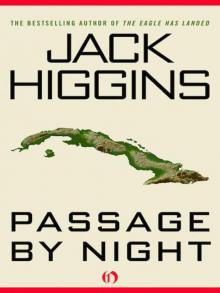 Passage by Night (v5)
Passage by Night (v5)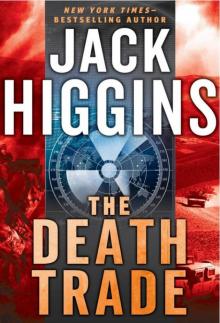 The Death Trade sd-20
The Death Trade sd-20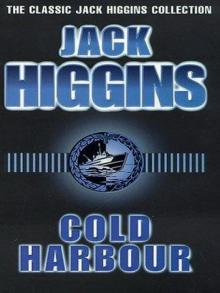 Cold Harbour
Cold Harbour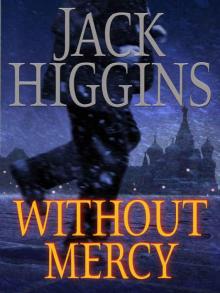 Without Mercy
Without Mercy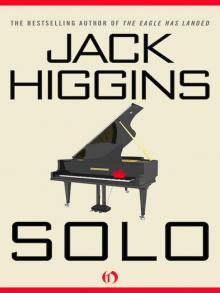 Solo (Aka the Cretan Lover)(1980)
Solo (Aka the Cretan Lover)(1980)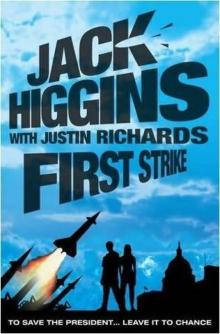 First Strike
First Strike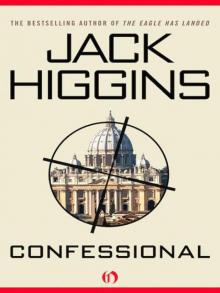 Confessional - Devlin 03 (v5)
Confessional - Devlin 03 (v5)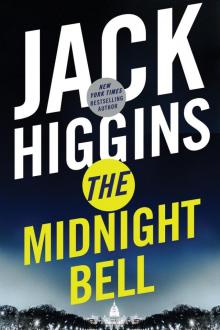 The Midnight Bell
The Midnight Bell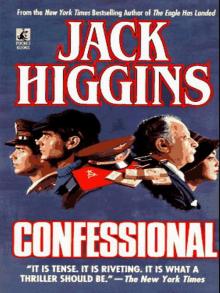 Confessional
Confessional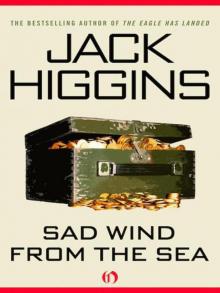 Sad Wind from the Sea (v5)
Sad Wind from the Sea (v5)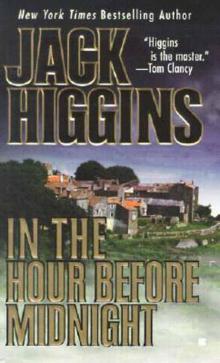 In The Hour Before Midnight aka The Sicilian Heritage
In The Hour Before Midnight aka The Sicilian Heritage Wrath of the Lion
Wrath of the Lion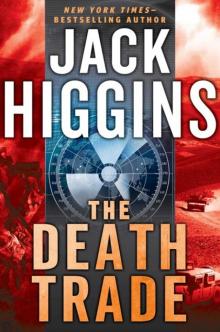 SDillon 20 - The Death Trade
SDillon 20 - The Death Trade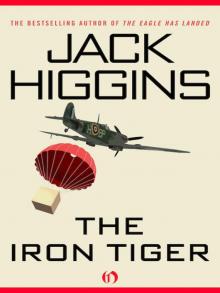 the Iron Tiger (1974)
the Iron Tiger (1974)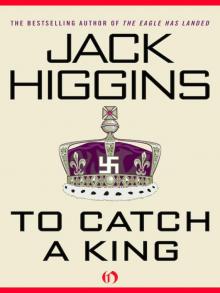 To Catch a King
To Catch a King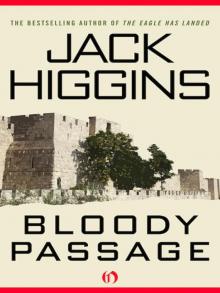 Bloody Passage (1999)
Bloody Passage (1999)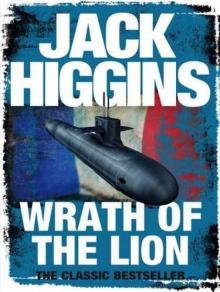 Wrath of the Lion sd-8
Wrath of the Lion sd-8 Sharp Shot
Sharp Shot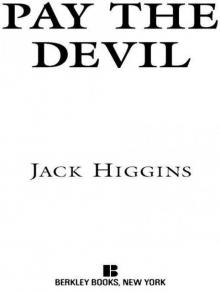 Pay the Devil (v5)
Pay the Devil (v5) A Devil Is Waiting
A Devil Is Waiting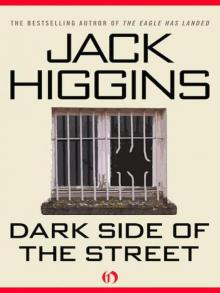 Dark Side of the Street - Simon Vaughn 01 (v5)
Dark Side of the Street - Simon Vaughn 01 (v5)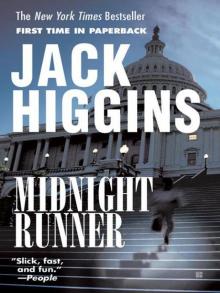 Midnight Runner - Sean Dillon 10
Midnight Runner - Sean Dillon 10 Wrath of God
Wrath of God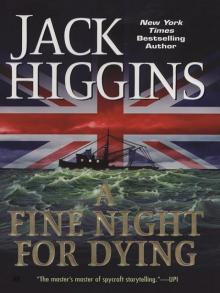 A Fine Night for Dying
A Fine Night for Dying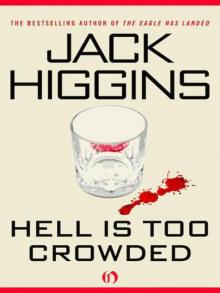 Hell Is Too Crowded v5)
Hell Is Too Crowded v5)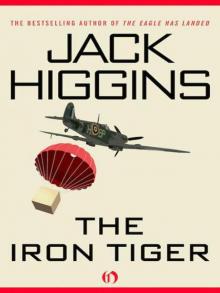 the Iron Tiger (v5)
the Iron Tiger (v5)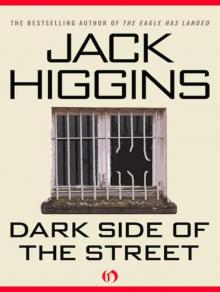 Dark Side of the Street pc-5
Dark Side of the Street pc-5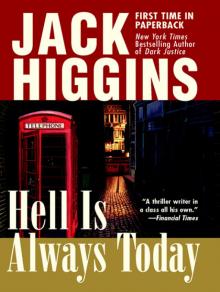 Hell Is Always Today
Hell Is Always Today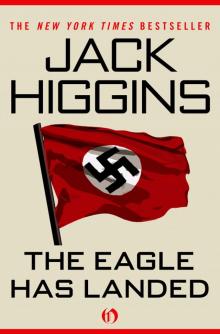 Eagle Has Landed
Eagle Has Landed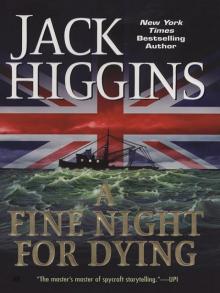 A Fine Night for Dying pc-6
A Fine Night for Dying pc-6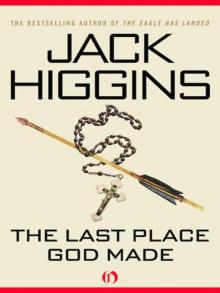 the Last Place God Made (v5)
the Last Place God Made (v5)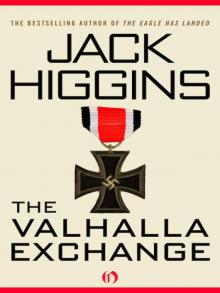 the Valhalla Exchange (1976)
the Valhalla Exchange (1976)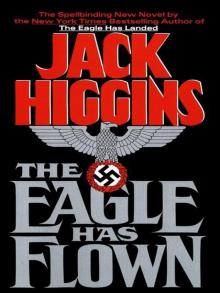 The Eagle Has Flown
The Eagle Has Flown Sure Fire
Sure Fire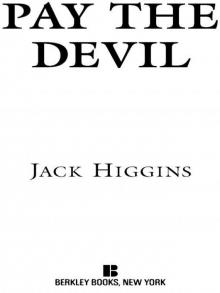 Pay the Devil (1999)
Pay the Devil (1999)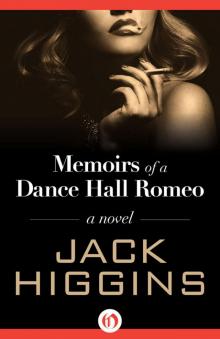 Memoirs of a Dance Hall Romeo
Memoirs of a Dance Hall Romeo![a Prayer for the Dying (1974)[1] Read online](http://i1.bookreadfree.com/i1/04/02/a_prayer_for_the_dying_19741_preview.jpg) a Prayer for the Dying (1974)[1]
a Prayer for the Dying (1974)[1]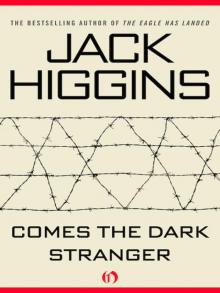 Comes the Dark Stranger
Comes the Dark Stranger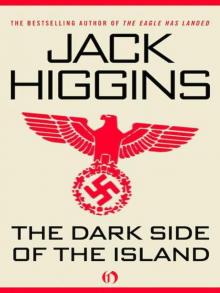 Dark Side Of the Island (v5)
Dark Side Of the Island (v5)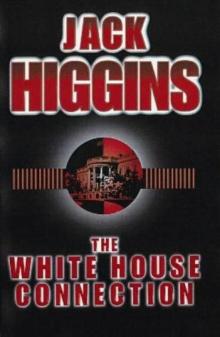 The White House Connection sd-7
The White House Connection sd-7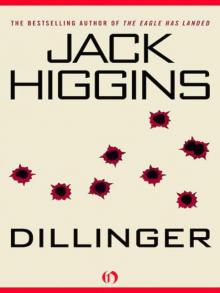 Dillinger (v5)
Dillinger (v5) Eye of the Storm
Eye of the Storm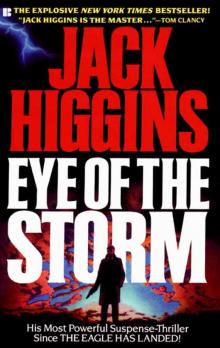 Eye Of The Storm aka Midnight Man
Eye Of The Storm aka Midnight Man A Darker Place
A Darker Place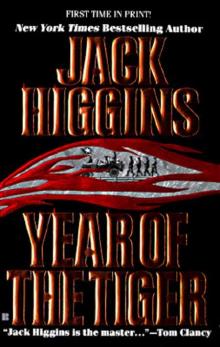 Year Of The Tiger
Year Of The Tiger Death Run
Death Run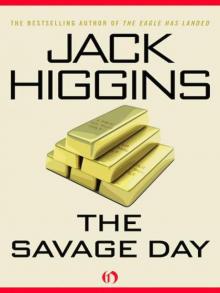 the Savage Day - Simon Vaughn 02 (v5)
the Savage Day - Simon Vaughn 02 (v5)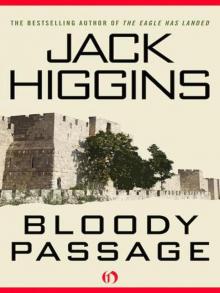 Bloody Passage (v5)
Bloody Passage (v5)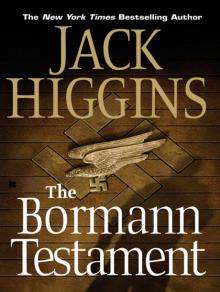 The Bormann Testament
The Bormann Testament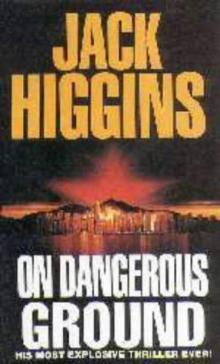 On dangerous ground sd-3
On dangerous ground sd-3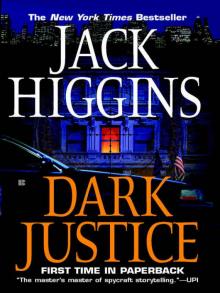 Dark Justice
Dark Justice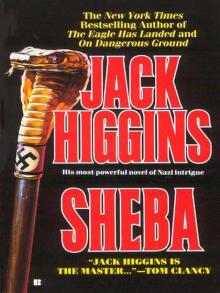 Sheba
Sheba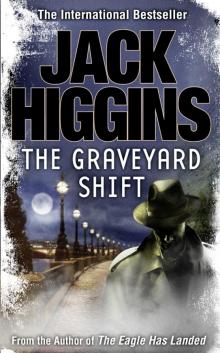 The Graveyard Shift
The Graveyard Shift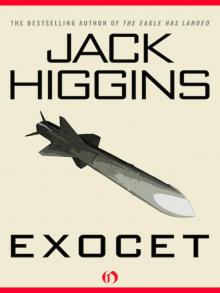 Exocet (1983)
Exocet (1983)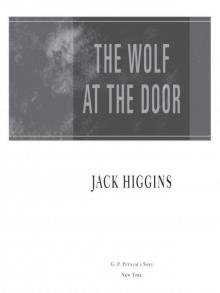 The Wolf at the Door
The Wolf at the Door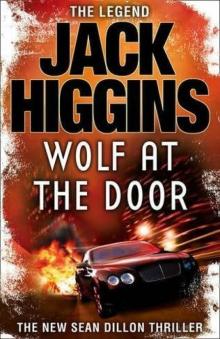 The wolf at the door sd-17
The wolf at the door sd-17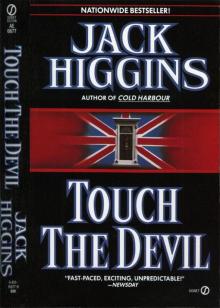 Touch The Devil
Touch The Devil The President’s Daughter
The President’s Daughter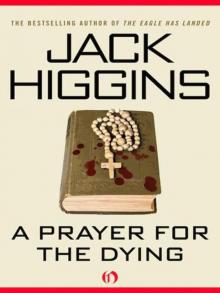 A Prayer for the Dying (v5)
A Prayer for the Dying (v5)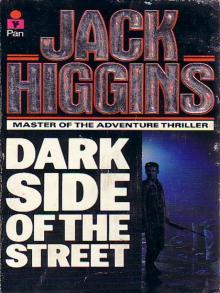 Dark Side Of The Street
Dark Side Of The Street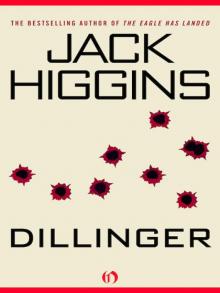 Dillinger (1983)
Dillinger (1983)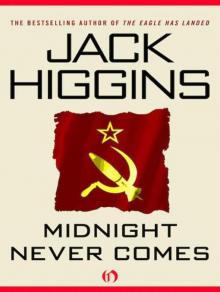 Midnight Never Comes pc-4
Midnight Never Comes pc-4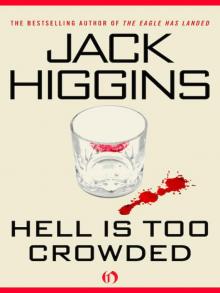 Hell Is Too Crowded (1991)
Hell Is Too Crowded (1991)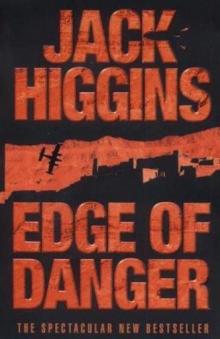 Edge of Danger sd-9
Edge of Danger sd-9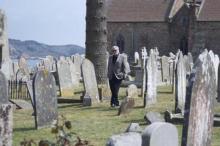 The Thousand Faces of Night (v5)
The Thousand Faces of Night (v5)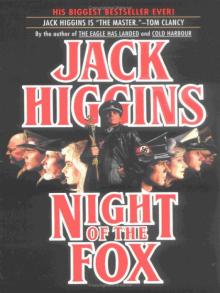 Night Of The Fox
Night Of The Fox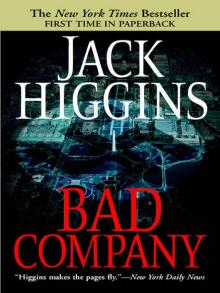 Bad Company
Bad Company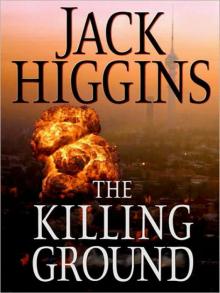 The Killing Ground
The Killing Ground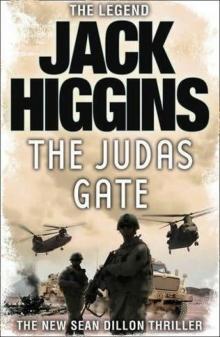 The Judas gate sd-18
The Judas gate sd-18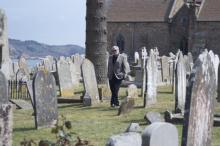 The Thousand Faces of Night (1961)
The Thousand Faces of Night (1961)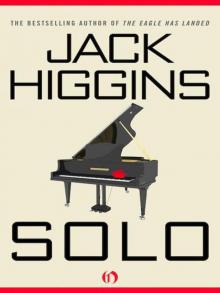 Solo (Aka the Cretan Lover) (v5)
Solo (Aka the Cretan Lover) (v5)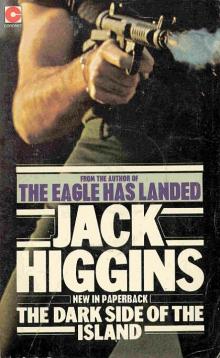 The Dark Side Of The Island
The Dark Side Of The Island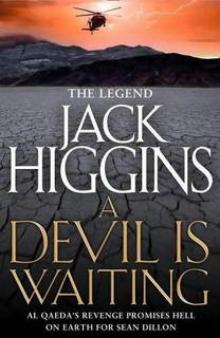 A Devil is vaiting sd-19
A Devil is vaiting sd-19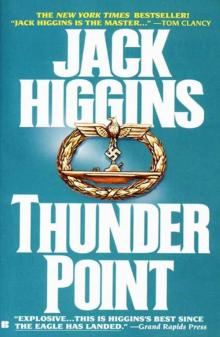 Thunder Point
Thunder Point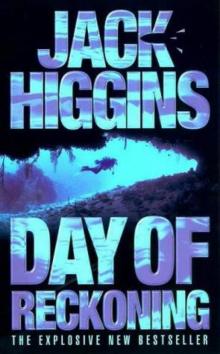 Day of Reckoning sd-8
Day of Reckoning sd-8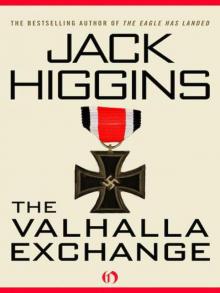 the Valhalla Exchange (v5)
the Valhalla Exchange (v5)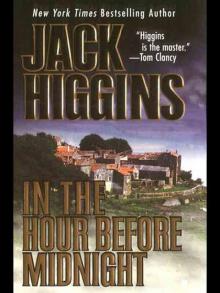 In the Hour Before Midnight
In the Hour Before Midnight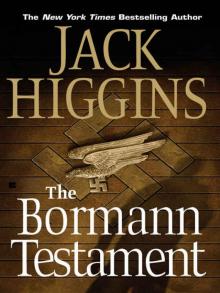 The Bormann Testament (The Testament of Caspar Schultz)
The Bormann Testament (The Testament of Caspar Schultz) The Judas Gate
The Judas Gate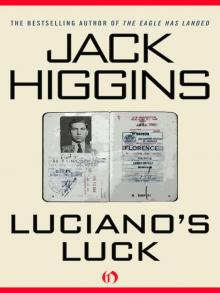 Luciano's Luck
Luciano's Luck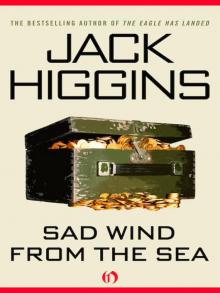 Sad Wind from the Sea (1959)
Sad Wind from the Sea (1959)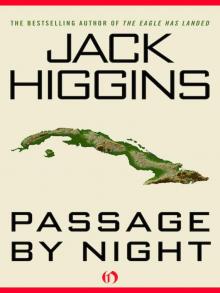 Passage by Night (1987)
Passage by Night (1987)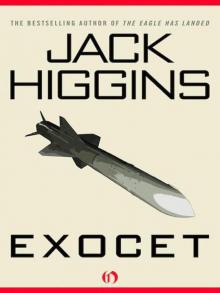 Exocet (v5)
Exocet (v5)